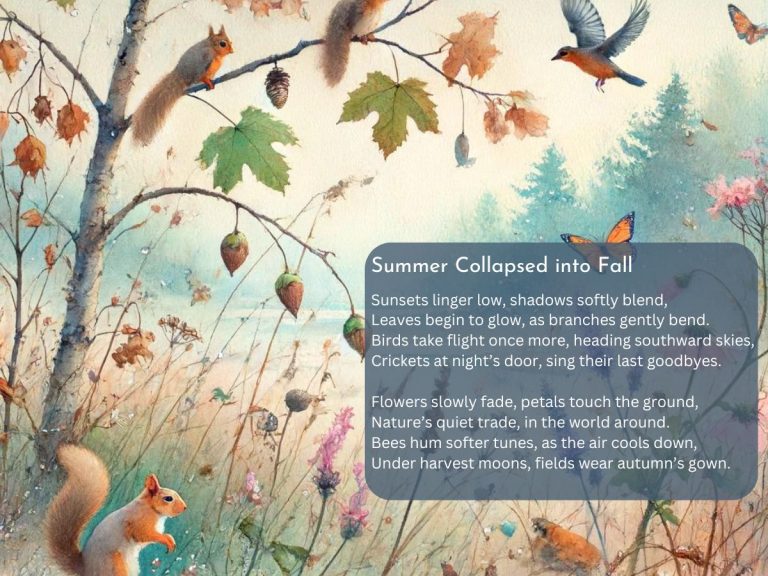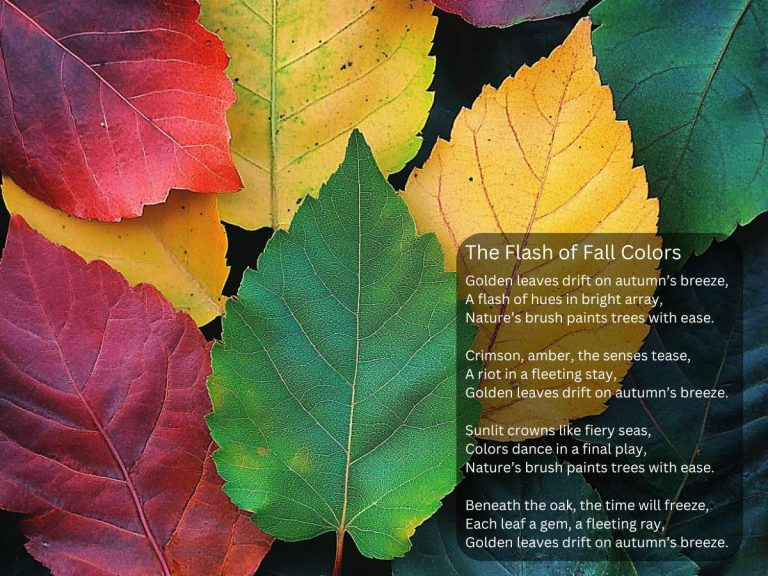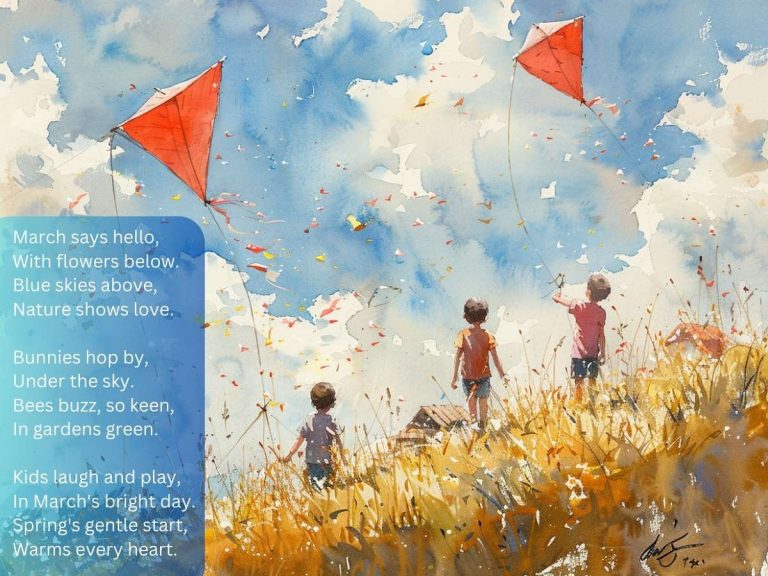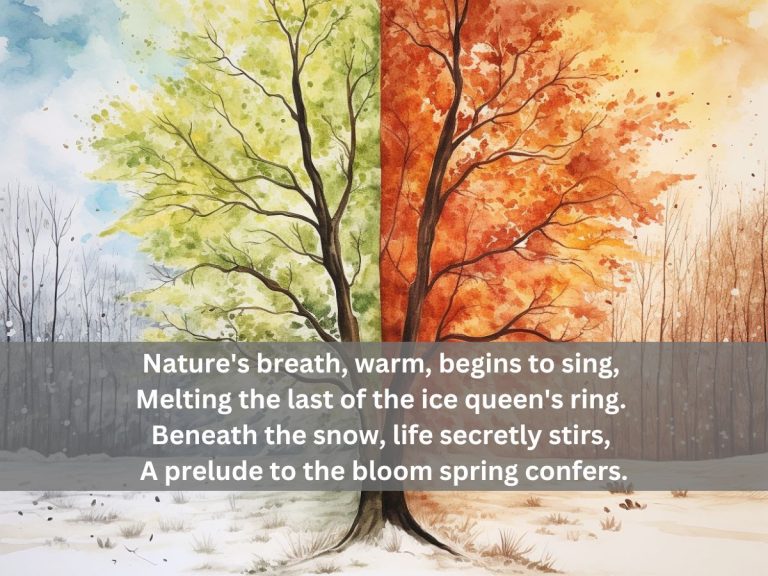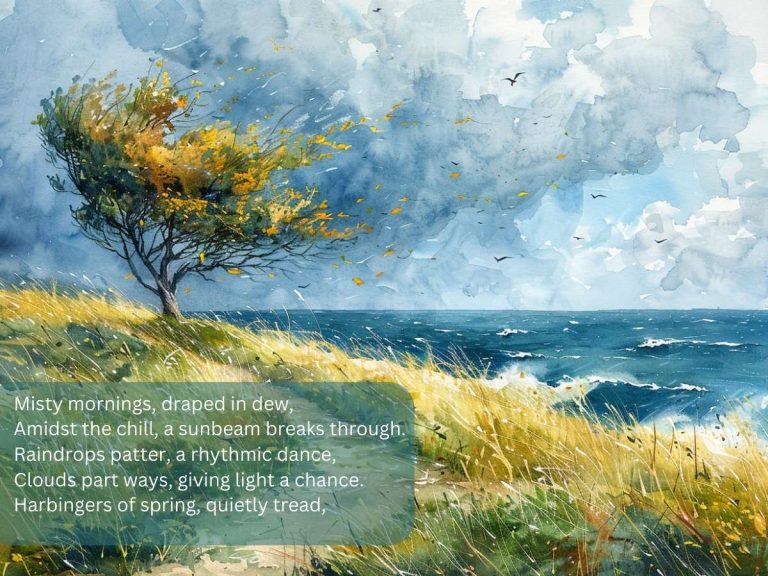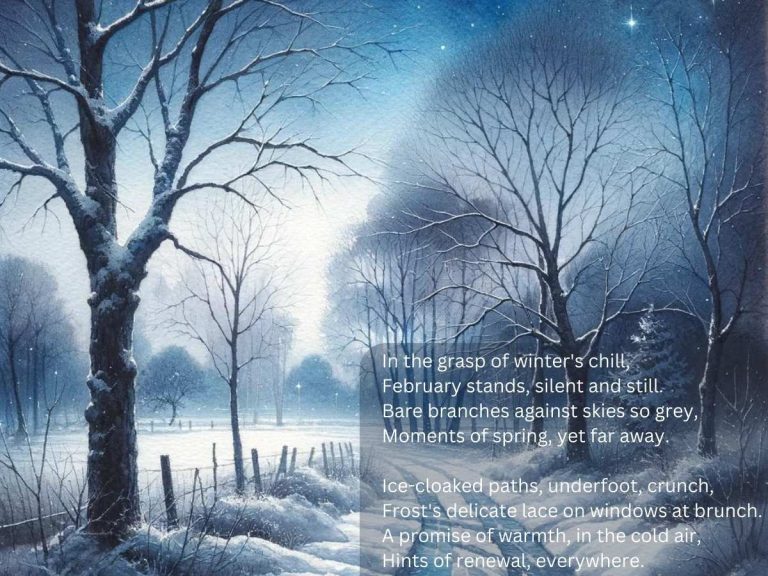10 Haiku Poems Spring
Table of Contents
Spring’s Whisper
Blossoms unfurling,
A whisper of spring's promise,
In dawn's soft embrace.
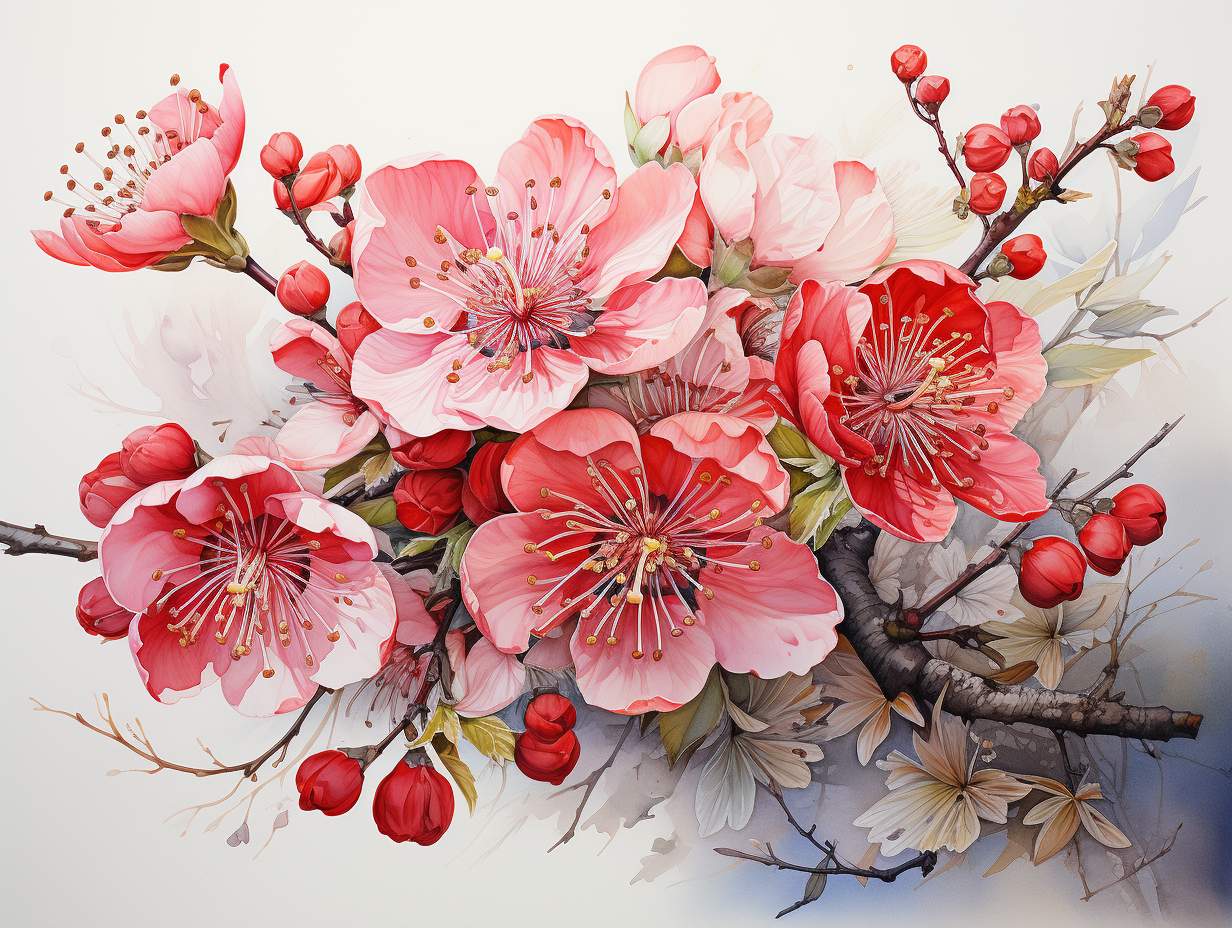
Summary
“Spring’s Whisper” captures the essence of spring’s gentle arrival. The poem moves beyond the traditional 5-7-5 haiku structure, allowing a freer expression of nature’s awakening. It paints a serene picture of blossoms opening, symbolizing new beginnings and the subtle yet profound transformation that occurs in the natural world during spring. The imagery of dawn’s embrace suggests a harmonious connection between time and nature, emphasizing the beauty and tranquility of early morning.
Inspirations Behind
As I crafted “Spring’s Whisper,” I was inspired by the quiet moments of early spring mornings. There’s something magical about watching the world awaken, with flowers unfurling their petals as if whispering secrets to the dawn. This poem is a reflection of those moments, an attempt to capture the serenity and promise that spring brings. It’s a deviation from the strict structure of traditional haiku, which I felt was necessary to convey the fluidity and grace of nature’s awakening.
Gentle Rain’s Embrace
Raindrops dance lightly,
Caressing earth's thirsty skin,
Spring's tender ballet.
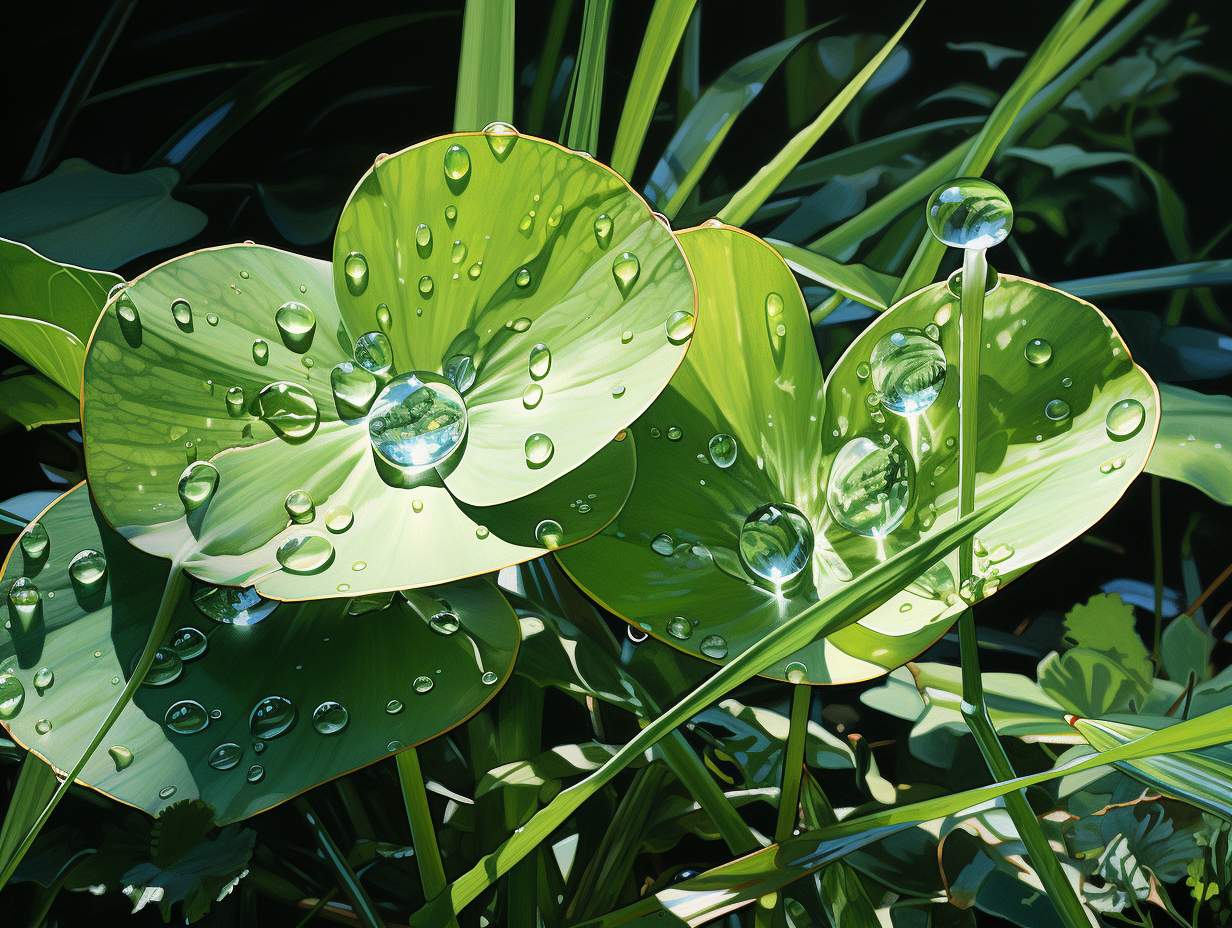
Summary
“Gentle Rain’s Embrace” is a poetic reflection on the rejuvenating power of spring rain. The poem steps away from the conventional 5-7-5 haiku structure, offering a more fluid form to express the delicate interplay between rain and earth. It paints a vivid picture of raindrops as dancers, gracefully touching the earth, symbolizing the nourishing and gentle aspect of spring showers. The imagery of earth’s ‘thirsty skin’ being caressed suggests a deep, symbiotic relationship between nature’s elements, highlighting the revitalizing impact of rain in spring.
Inspirations Behind
While composing “Gentle Rain’s Embrace,” I found myself inspired by the soft, rhythmic sound of rain in spring. It’s a sound that speaks of renewal and growth. I envisioned raindrops as dancers in nature’s grand performance, each one playing a vital role in awakening the earth. This poem is my ode to these moments, capturing the elegance and essential nature of the spring rain. Moving beyond the traditional haiku structure allowed me to more freely convey the grace and beauty of this natural phenomenon.
The recited Haiku are here. Have a listen.
Dusk’s Serenade
Evening's soft glow fades,
Whispering through crimson leaves,
Dusk sings her last song.
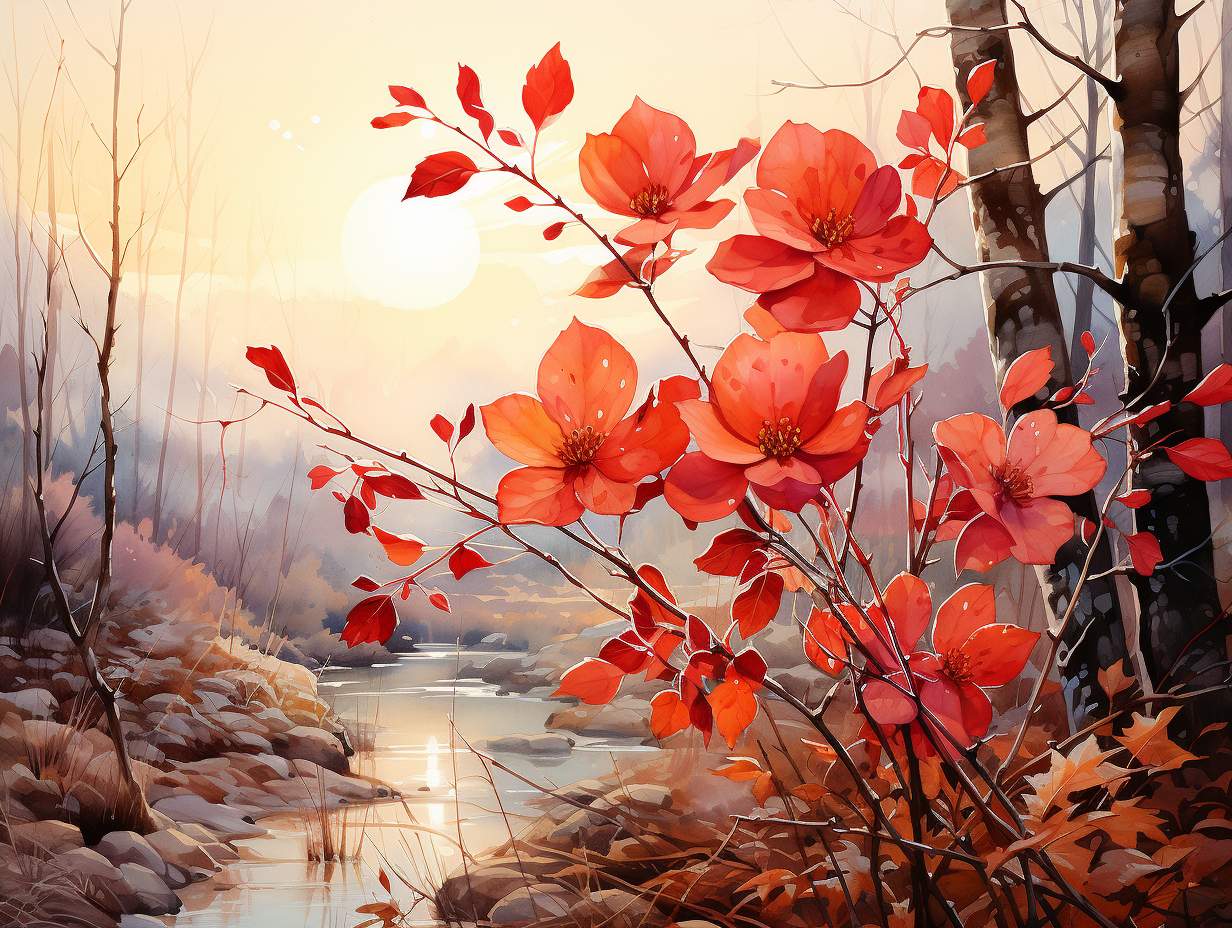
Summary
“Dusk’s Serenade” is a lyrical depiction of the peaceful transition from day to night. The poem deliberately avoids the traditional 5-7-5 haiku structure to more fluidly capture the essence of evening. It paints a vivid image of the day’s last light gently fading, symbolizing the end of one phase and the beginning of another. The use of ‘crimson leaves’ adds a touch of color and life, indicating the presence of nature in this daily transformation. The personification of dusk as a singer offers a sense of closure and beauty, evoking the tranquil and reflective mood of evening.
Inspirations Behind
As I composed “Dusk’s Serenade,” I was inspired by the quiet, reflective moments at the end of the day. There’s a certain magic in the way the evening light plays with the colors of nature, creating a symphony of shades and shadows. This poem is my tribute to those fleeting moments, a blend of observation and imagination. I chose to step away from the conventional haiku structure to give the words more room to breathe, mirroring the expansive feeling of the evening sky.
Breeze Through Cherry Trees
Spring breeze whispers soft,
Cherry blossoms swirl in air,
Nature's dance unfolds.
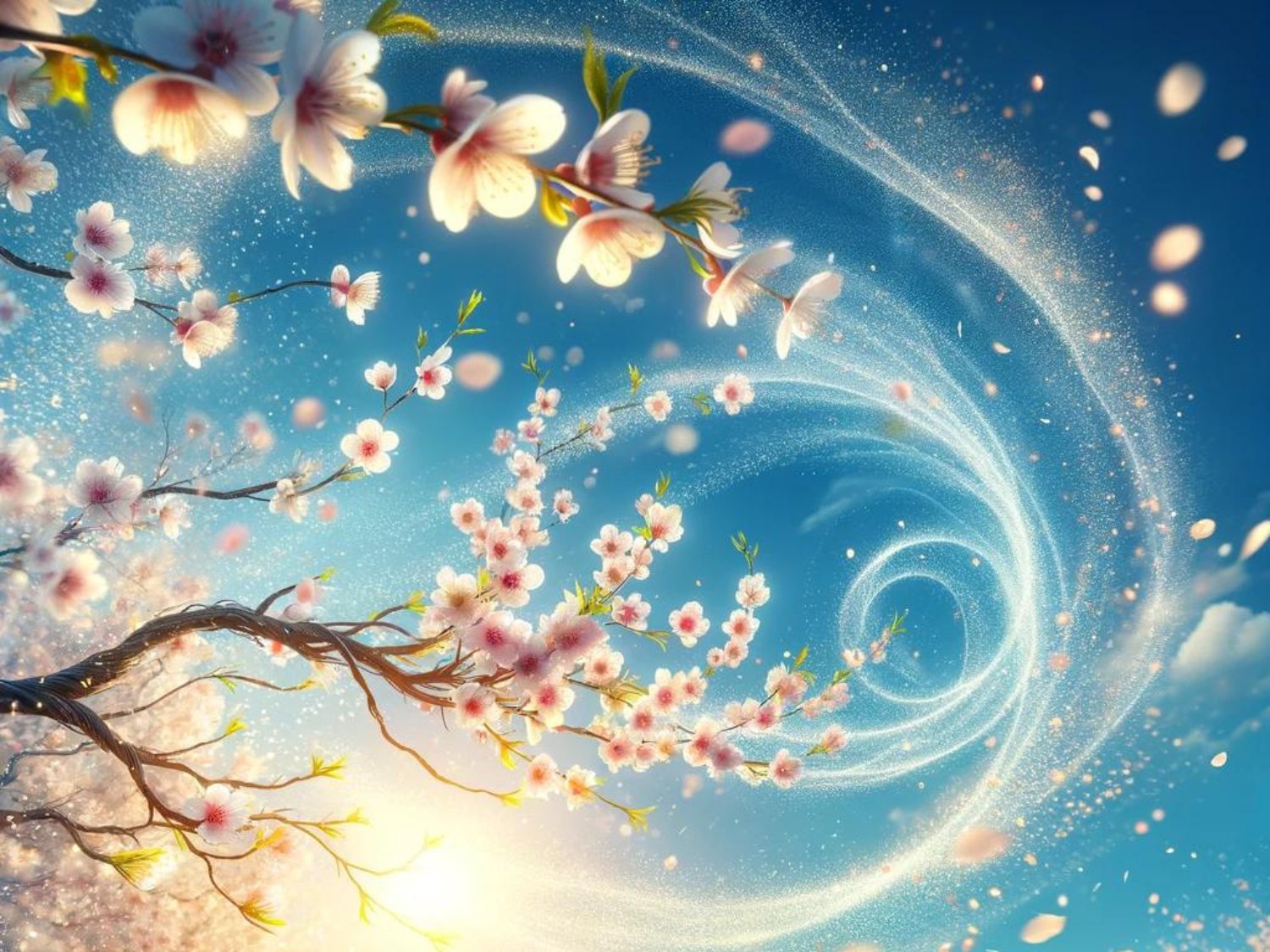
Summary
“Breeze Through Cherry Trees” is a haiku that captures the ethereal beauty of spring. By moving away from the traditional 5-7-5 structure, the poem adopts a more fluid form to convey the delicate dance of nature. It depicts a gentle spring breeze and the playful movement of cherry blossoms, symbolizing the lively, rejuvenating spirit of the season. The imagery of blossoms swirling in the air brings a sense of motion and vitality, reflecting the dynamic yet graceful character of spring.
Inspirations Behind
While writing “Breeze Through Cherry Trees,” I was inspired by the simple yet profound beauty of cherry blossoms caught in a spring breeze. These moments, when petals dance in the air, are fleeting and precious, embodying the transient nature of beauty and life. The poem aims to capture this essence, allowing the words to flow as freely as the blossoms in the wind. I chose to step beyond the confines of traditional haiku structure to mirror the unbounded joy and vibrancy of spring.
Moonlit Spring Night
Moonlight bathes the fields,
In spring's silent, silver song,
Night blooms softly sing.
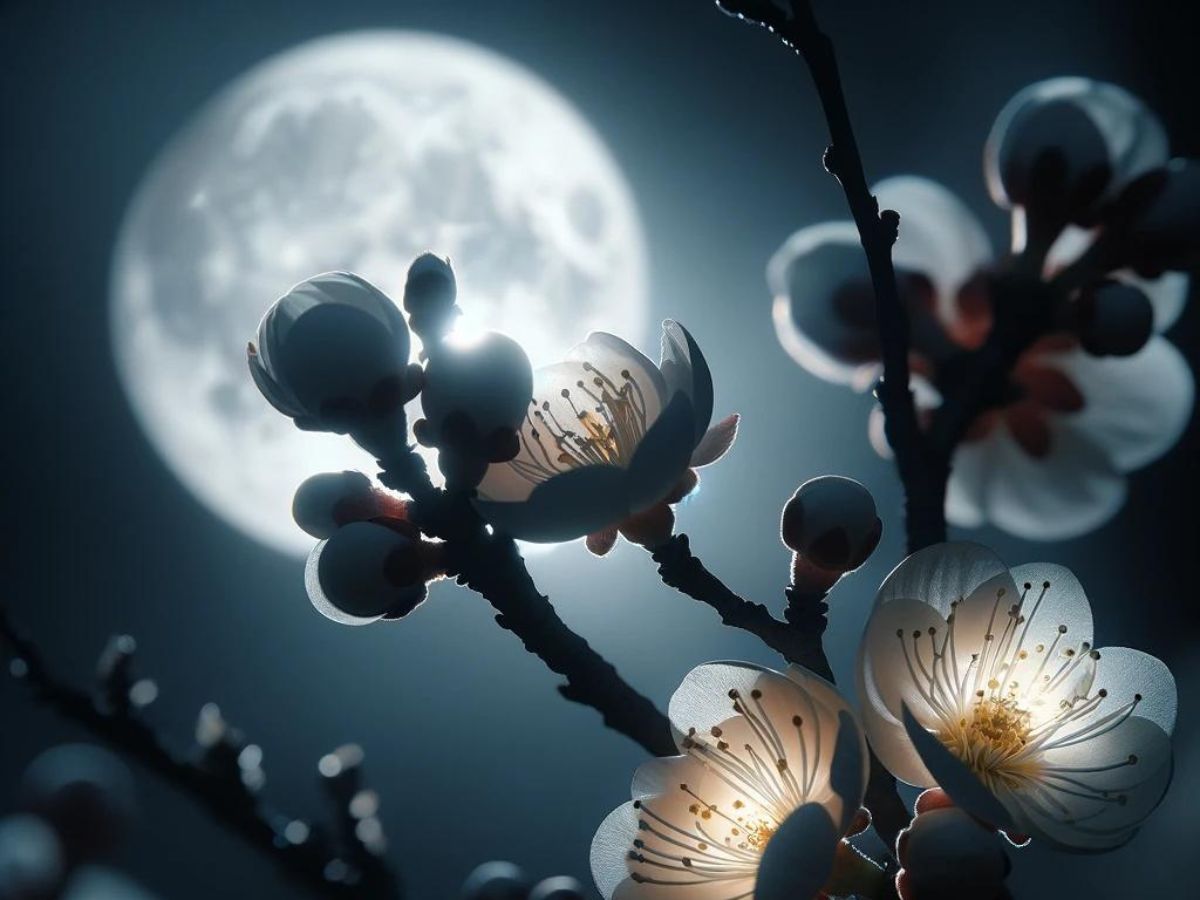
Summary
“Moonlit Spring Night” is a haiku that captures the serene beauty of a spring night under the moonlight. Eschewing the traditional 5-7-5 structure, the poem adopts a more fluid approach to convey the tranquil atmosphere of the scene. It paints an image of moonlight streaming over fields, likening it to a silent, silver song. This imagery adds a mystical quality to the poem, suggesting a harmonious and gentle interaction between the moon and the awakening life of spring. The phrase “night blooms softly sing” hints at the subtle, often unnoticed, beauty of nature at night.
Inspirations Behind
I was inspired to write “Moonlit Spring Night” by the enchanting quality of spring nights under a clear moonlit sky. The way moonlight transforms the landscape, casting a silver glow over everything, always strikes me as a visual melody. This poem is an attempt to capture that melody, the quiet yet profound beauty of a spring night. By stepping away from the rigid structure of traditional haiku, I sought to mirror the fluid and ethereal nature of moonlight itself.
Whispers of Spring Dawn
Dawn breaks, soft and clear,
New leaves rustle in the light,
Spring's whispers awaken.

Summary
“Whispers of Spring Dawn” is a haiku that celebrates the gentle awakening of nature in spring. By avoiding the traditional 5-7-5 structure, the poem flows more naturally, capturing the essence of a spring morning. It paints a picture of dawn breaking softly, symbolizing new beginnings and the renewal of life. The imagery of new leaves rustling in the light brings a sense of movement and vitality, signifying nature’s response to the arrival of spring. The phrase “Spring’s whispers awaken” encapsulates the quiet yet profound transformation that occurs as the world awakens to a new day.
Inspirations Behind
Inspired by the serene beauty of spring mornings, “Whispers of Spring Dawn” reflects my fascination with the subtle changes that herald the arrival of spring. The gentle breaking of dawn and the rustling of new leaves in the light always feel like nature is whispering its secrets. This haiku is an attempt to capture that moment of quiet awakening, where every element of nature seems to be in harmony, welcoming the new day. Choosing a more fluid haiku structure allowed me to better express the soft, yet dynamic nature of spring mornings.
Dawn’s First Blush
Morning light caresses,
Dew-kissed blooms greet the new day,
Spring's first blush revealed.
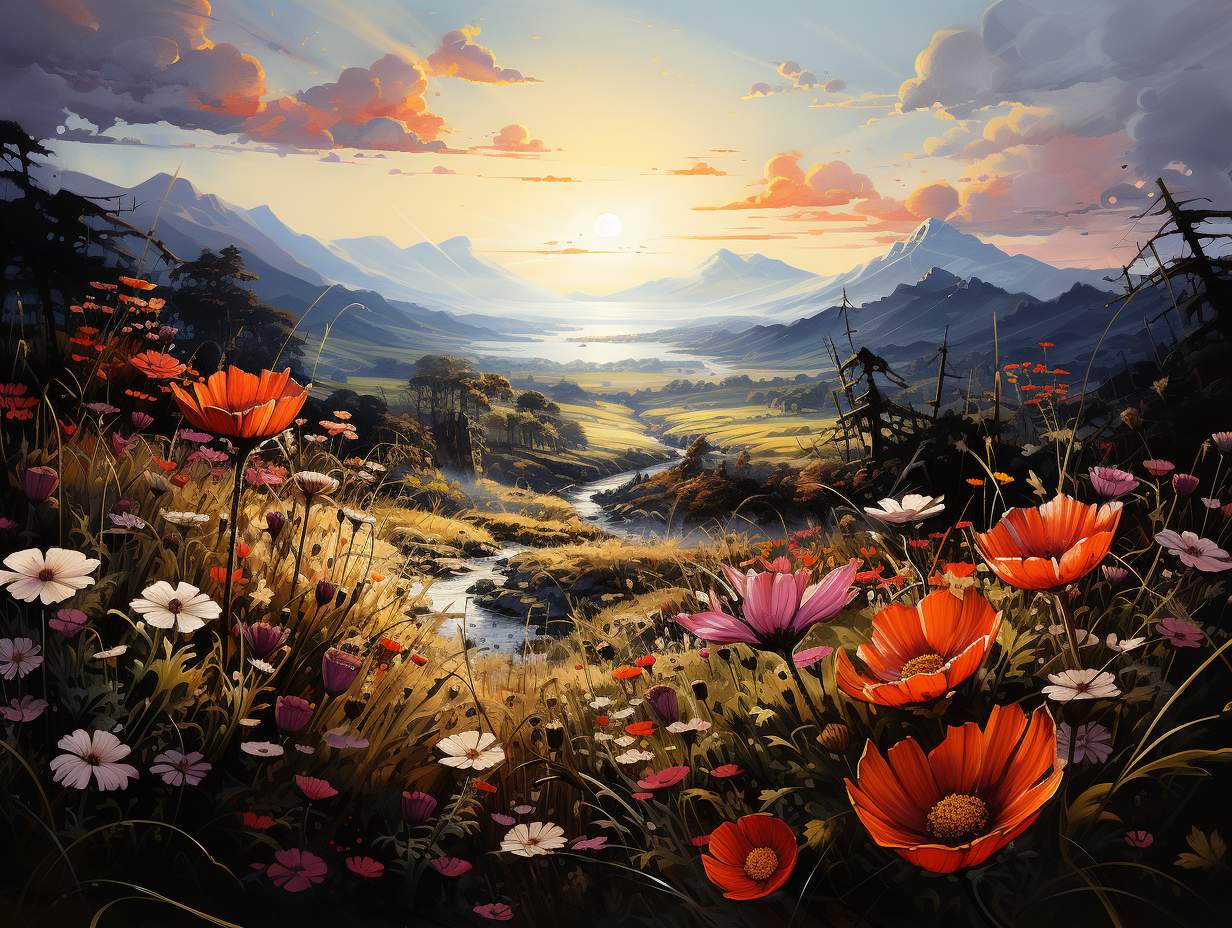
Summary
“Dawn’s First Blush” captures the serene beauty of a spring morning. The poem moves away from the traditional haiku structure to evoke the tender encounter of early light with dew-covered flowers, marking the start of a new day.
Inspirations Behind
I was inspired to write “Dawn’s First Blush” during my early morning walks. Witnessing the first light of day gently illuminating the dewy flowers, I felt a profound sense of peace and renewal. This poem is my attempt to encapsulate that delicate moment, a personal tribute to the beauty of spring’s awakening.
Whispering Willows
Willows whispering,
Soft secrets of spring's arrival,
Nature's hushed dialogue.
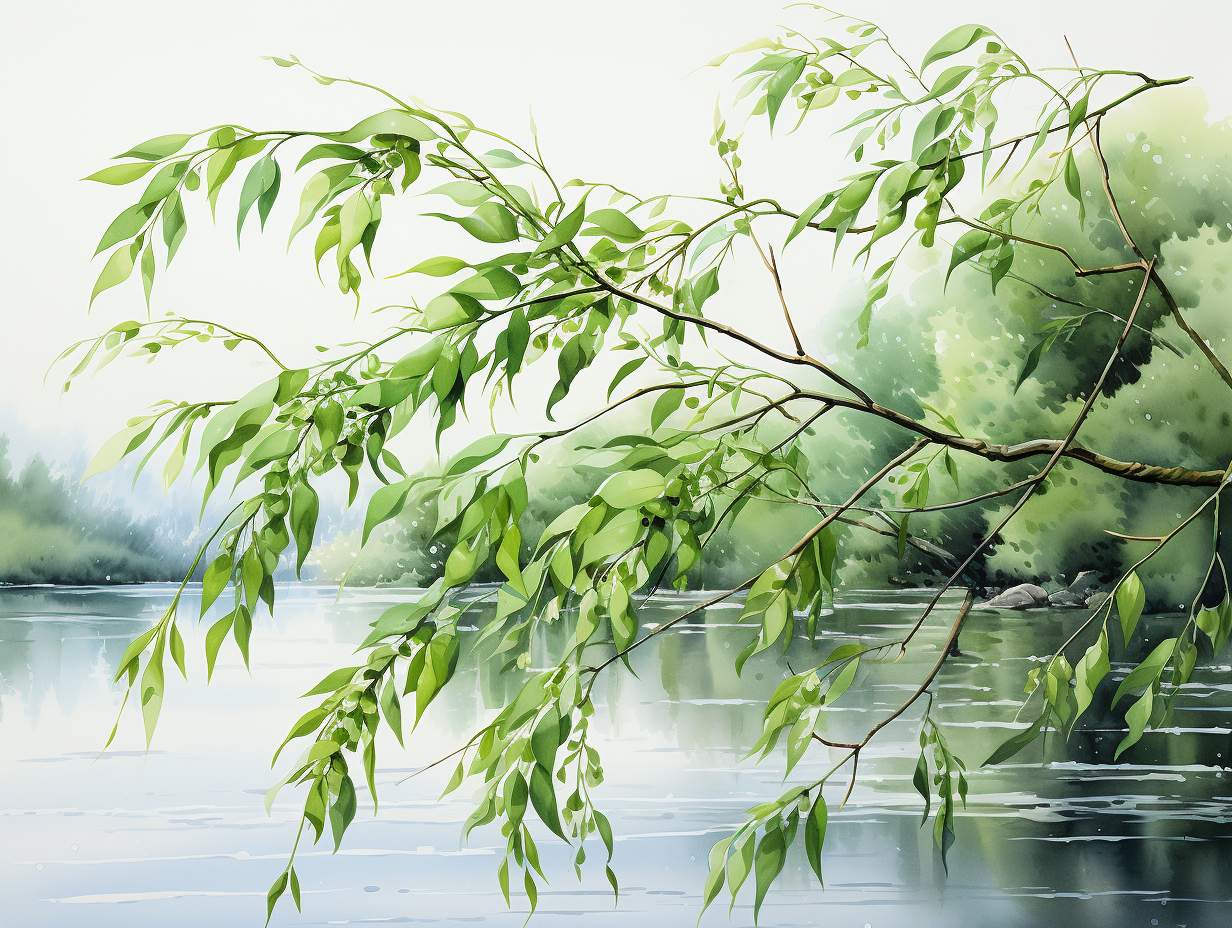
Summary
“Whispering Willows” delves into the subtle, often overlooked conversations of nature in spring. The poem steps away from the standard haiku form to capture the gentle rustling of willow trees, signaling the quiet emergence of spring.
Inspirations Behind
Sitting under the willow trees in my garden, I often find myself lost in their soft rustling. This sound, to me, feels like the whispering of nature’s secrets. “Whispering Willows” came from these reflective moments, as I sought to translate the willows’ gentle whispers into words, capturing the essence of spring’s arrival.
Petal’s Journey
A petal adrift,
Carried by spring's gentle breath,
Journey through sunlight.
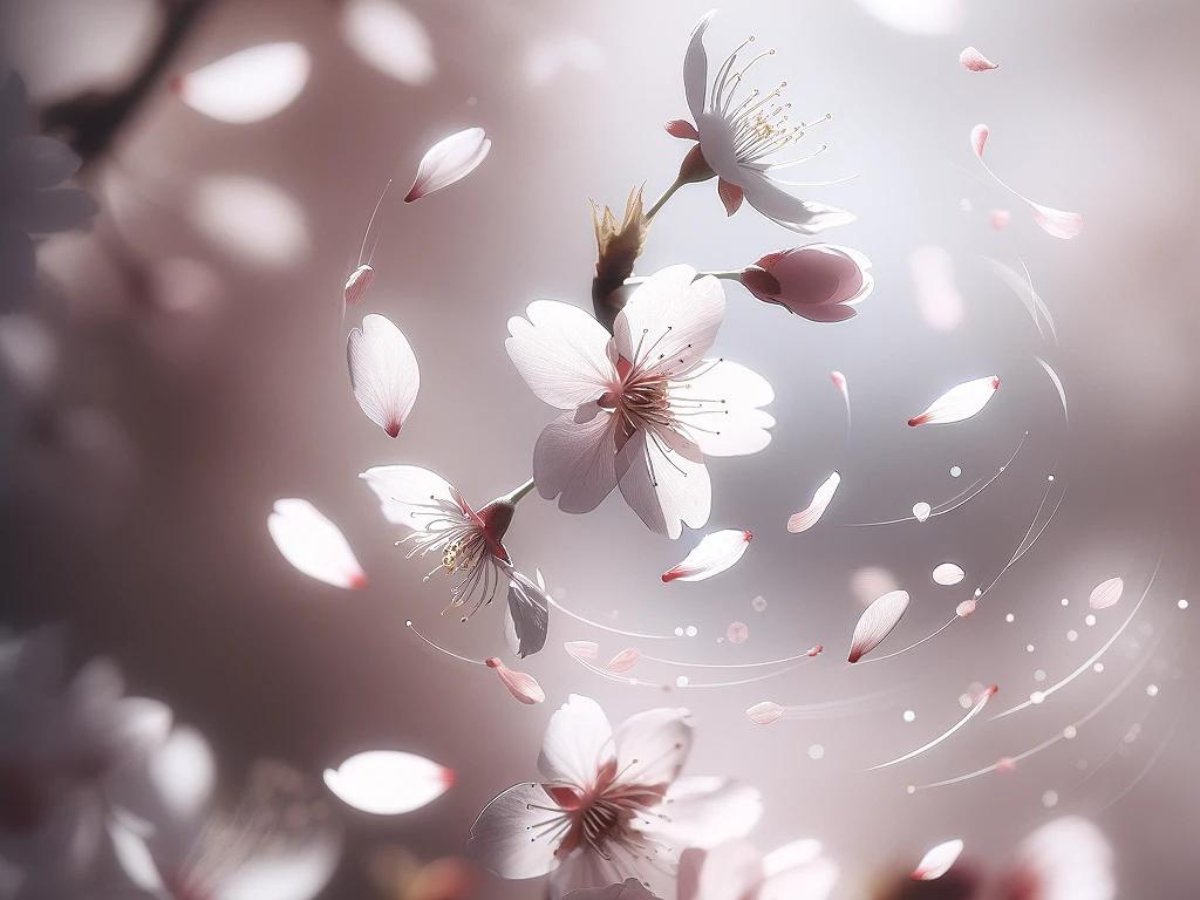
Summary
“Petal’s Journey” follows the light, airy path of a floating petal, symbolizing freedom and transience. The poem breaks from the traditional haiku structure to vividly describe this delicate journey under the spring sun.
Inspirations Behind
One spring day, I watched a cherry blossom petal drift past me, dancing in the breeze. This simple, graceful movement filled me with a sense of lightness and freedom. “Petal’s Journey” is born from this personal moment of connection with nature, reflecting on the beauty and fleetingness of life’s journey.
Evening’s Spring Song
Twilight serenades,
Crickets sing under starlight,
Spring's evening anthem.
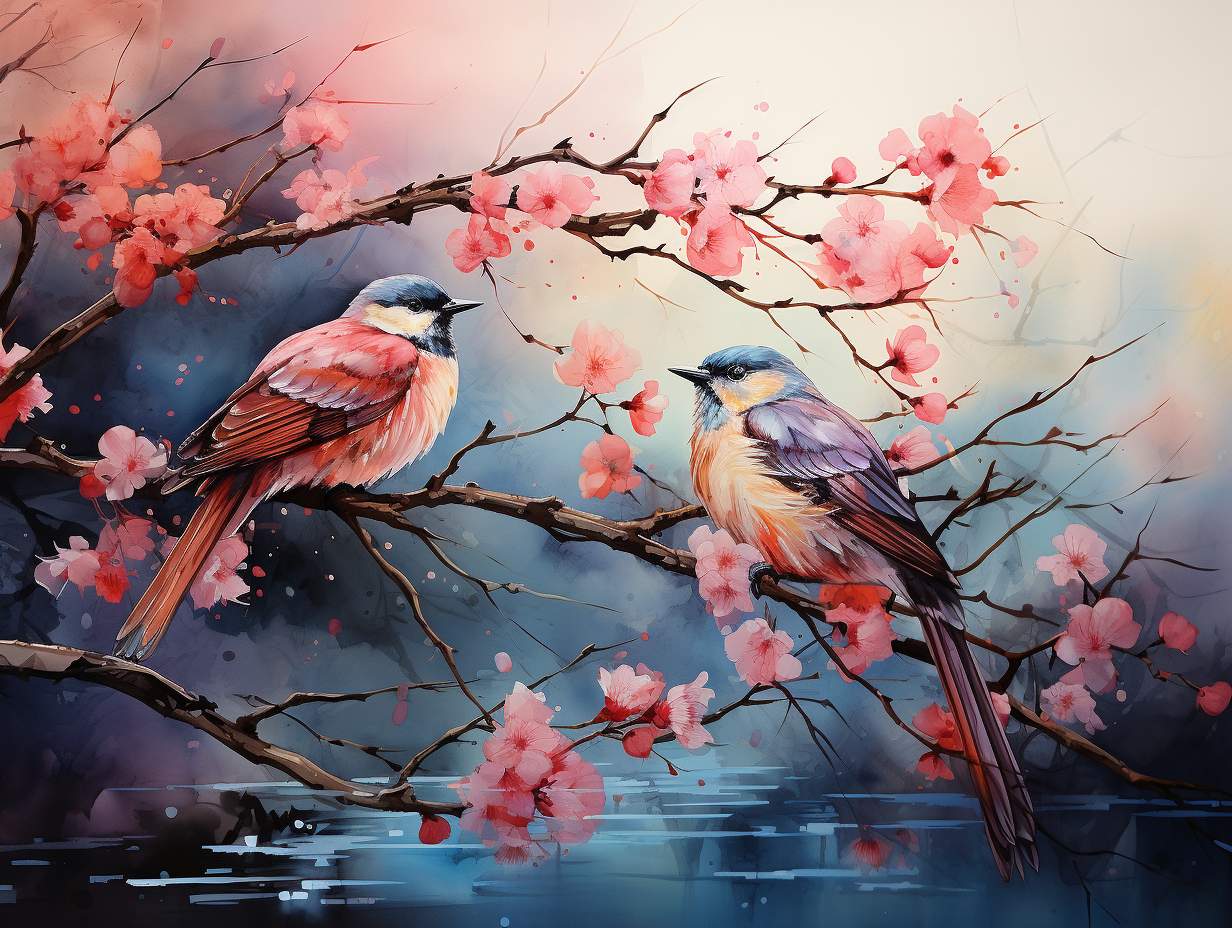
Summary
“Evening’s Spring Song” paints a vivid soundscape of a spring night. The poem, not confined to a standard haiku format, captures the melodic symphony of crickets under a starlit sky, symbolizing the vibrant yet peaceful end to a spring day.
Inspirations Behind
Lying in my backyard one spring evening, the chorus of crickets under the starry sky captivated me. Their rhythmic song seemed to celebrate the day’s end and welcome the night. “Evening’s Spring Song” is my creative expression of this experience, an ode to the natural symphony that defines spring nights.
End Words
In these spring haiku poems (though some people love to call them haiku poems spring), the varied essence of the season is beautifully captured. From dawn’s gentle touch to the whispers of nature and the delicate dance of petals, each poem paints a unique aspect of spring. The evening’s melodious chorus and the nurturing spring rains further enrich this poetic journey, offering a serene and vivid celebration of the season’s rejuvenating spirit.

